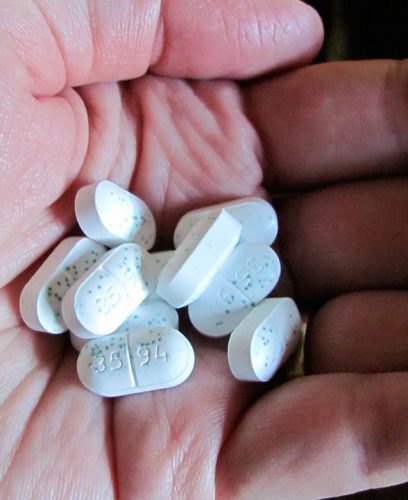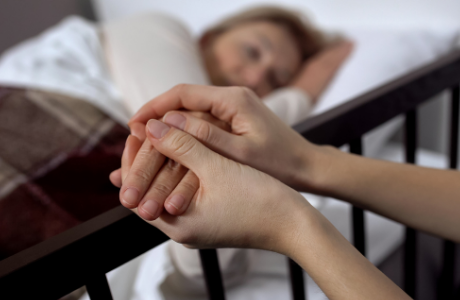On 29 November 2017, Victoria became the first Australian state to pass legislation allowing voluntary assisted dying. The law gives anyone suffering a terminal illness, with less than six months to live, the right to end their life. “From 19 June 2019, Victorians at the end of life who are suffering and who meet strict eligibility criteria will be able to request access to voluntary assisted dying. The law allows for an 18-month implementation period to give health services time to plan and prepare for voluntary assisted dying.” For more information, check out the Victorian State Government website.
I concede that this is a highly emotional and divisive topic and I acknowledge every person’s right to their opinion for their reasons.
Christie and I spoke a while ago with an MP who was part of the cross-party committee and ministerial advisory panel. This group visited countries and states that have already introduced similar legislation; they talked to numerous people who hold varying views for various reasons. The exhaustive report, which contains 66 recommendations, is considered to be among the most conservative legislation of its type in the world. [1] The committee said any request to die must come from a terminally ill, mentally competent patient over the age of 18 in the final weeks or months of their life, and must be approved by a primary doctor/ specialist and an independent secondary doctor.
The Bill (and hence this blog) has to do with voluntary assisted dying (VAD) rather than euthanasia or assisted suicide. VAD refers to people who are already dying and where the patient takes the medication prescribed. Euthanasia is usually where the doctor administers the medicine, whilst assisted suicide includes people who are not terminally ill, but who are being helped to commit suicide. It’s vital that these definitions are understood.
I take my calling as a pastor very seriously, and my pastoral gift causes me to see and engage with people and not just issues. I am not a blogger who is removed from people and their pain; I am a pastor who happens to write a weekly blog as part of my ministry. I often receive criticism from those who think I should be black and white about specific issues, but what individuals deal with in daily life concerns me more than statistics, disputes, questions and cherry-picked Bible verses. And so, when it comes to VAD, I believe it’s important to consider the following pastoral concerns that affect precious people and their loved ones in the final weeks or months of life with a terminal illness:
- While palliative care in Australia is amongst the best in the world, it is not available to everyone. A while ago I listened to a radio interview with an oncologist and she said the resources of finance, people and equipment for palliative care are insufficient and not always available within the timeframe they’re needed. In other words, just because palliative care is requested doesn’t mean the patient will receive it when they need it. Obviously more resources need to be made available, and this is a significant recommendation of the VAD report.
- Not every condition responds to palliative care, and so some terminally ill people opt for suicide to spare themselves and their families the pain (or non-pain symptoms) that will surround their death. The Australian Bureau of Statistics shows that three Australians over the age of 75 take their lives each week, usually because of terminal illness.[2] Of course, there are also people younger than 75 who suicide because of a terminal condition.
- Voluntary assisted dying can be a viewed by the terminally ill as a safety net in case it’s needed. In 2014 Christie and I had the privilege of interviewing Peter Short on The Exchange TV program.[3] Peter was terminally ill with oesophageal cancer and used his final months to advocate for VAD. A couple of years ago, we attended the launch of the documentary Fade to Black that details Peter’s last months.[4] Peter was given a dose of Nembutal in case his symptoms became too much to bear but, in the end, he found palliative care sufficient and he passed away peacefully during December 2014. I’ve heard many people talk about VAD as a safety net that gives them peace just knowing they have a way to end intolerable suffering should it occur. Very few end up taking it. As Andrew Denton says, “it’s not about someone choosing to end their life because they want to end their life, it’s about someone who is already dying choosing to end their suffering.”
- It’s crucial that we become better at having deep and meaningful conversations about death and dying, something I find many people are uncomfortable with, but appreciate when they happen. Some months ago, I interviewed Graham Crossan[5], a member of Bayside Church, who has Motor Neurone Disease. We chatted about lots of things including living with a terminal illness, death and dying. Many people in our church told me how grateful they were for the honest discussion.
Whatever your opinion is of voluntary assisted dying, it’s important to think carefully about it as it affects real people at what for many will be the most challenging time for them, their friends and family.
[1]https://www2.health.vic.gov.au/about/publications/researchandreports/ministerial-advisory-panel-on-voluntary-assisted-dying-final-report
[2]www.aph.gov.au/~/media/wopapub/senate/…/clac…/suicide/…/sub170_pdf.ashx
[3] http://www.theexchangetv.com.au/right-die/
[4] https://www.youtube.com/watch?v=5Pv0zqWowto
[5] https://www.youtube.com/watch?v=rxasDElBbMs





